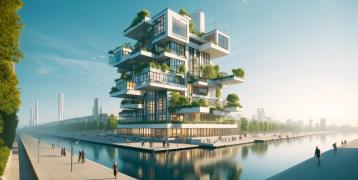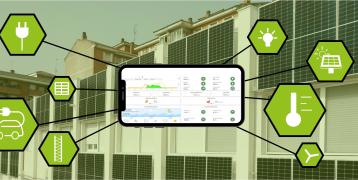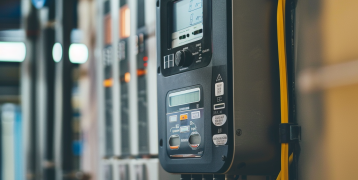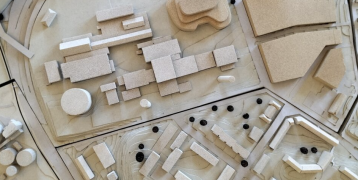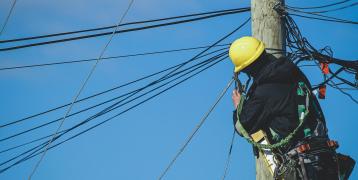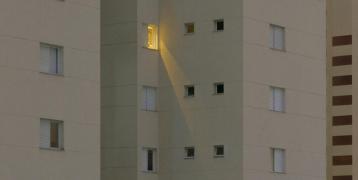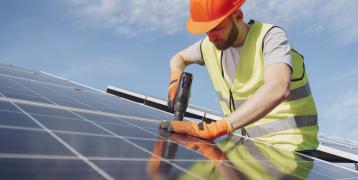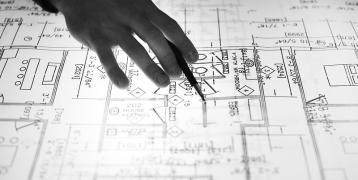Enabling the renovation wave: key learnings
On 23 May 2024, the Policy Learning Platform organised a workshop on 'Enabling the renovation wave' in Vienna. Throughout the day, we explored One-Stop-Shops and replicable approaches for large-scale renovation.
What was the workshop about?
As part of the European Green Deal, the EU has increased its carbon reduction goals, including the revised Energy Performance of Buildings Directive (EPBD). This directive mandates energy performance certificates, nearly-zero energy buildings, and the creation of one-stop-shops for renovation support. Member States must also develop long-term renovation strategies and financial mechanisms to decarbonize buildings by 2050.
The Renovation Wave Strategy aims to double the annual building renovation rate by 2030, focusing on energy poverty, public buildings, and decarbonizing heating and cooling.
Building renovation is crucial due to the decentralized nature of the heating and cooling sector. The European Commission will soon release a Heat Pump Action Plan to promote technology that can replace gas boilers.
To meet our climate targets there is a significant need to increase the rate of renovation of Europe’s buildings. The Renovation Wave Initiative aims to double the annual rate of renovation by 2050, but how can regions enable this?
During the day:
- Keynotes were delivered on the effectiveness of the Renovation Wave and on heat pumps in the heating transition.
- The first thematic session featured presentations on One-Stop-Shops for energy renovation from Austria, Lithuania, and France.
- The second session covered replicable models for large-scale renovation, with examples from Germany, France, and Italy.
- An interactive World Café Session allowed participants to discuss and address challenges in aggregation and speeding up the renovation process, with insights shared in a plenary session.
- It also included a site visit to a newly renovated building to explore Vienna’s efforts to cut gas use for heating.
To learn more about this topic, explore the conclusions report our experts have prepared for you.
It contains insights into enabling the renovation wave as well as inspiring Interreg Europe good practices and policy recommendations.
Featured projects
Featured good practices
One-Stop-Shops
One-Stop-Shops (OSS) are proven instruments for increasing the renovation rate of buildings, by providing advice and access to funding and expertise for homeowners to renovate their buildings. Three examples of One-Stop-Shops were presented at the workshop, which showed some trends for setting them up
Hauskunft is the One-Stop-Shop of Vienna, providing free of charge consultation and individual support to all types of homeowners from detached houses to apartment buildings and rental properties.
The OSS was developed in the RenoBooster project as a new department of wohnfonds_wien, the Vienna Housing Fund. The OSS has a particular focus on thermal refurbishment of buildings, helping to implement Vienna’s effort to phase out gas heating systems, a particular challenge given the city’s predominance of decentralised systems.
Atnaujinkime miestą (‘Let’s renew the city’) is an OSS to improve multi-apartment buildings in Vilnius which provides administrative support to owners, as well as mobilising interest amongst apartment owners and negotiating amongst them to get renovation works going.
Vilnius uses a mixture of carrots and sticks to speed up the renovation process by renovating the neighbouring public areas if buildings are renovated, while also removing heating subsidies from owners who refuse renovations.
In France, many renovation funders are available, with many types of subsidies and grants, making it a challenge for homeowners to find the best options for their circumstances.
AMELIO acts as an assembler for the Metropole of Lille, helping home owners to identify renovation options and assist them in accessing finance. Acting as a single contact point, it provides neutral and free consulting and has a network of qualified companies to implement works.
AMELIO is multi-disciplinary, with operators, thermal engineers, occupational therapists, social workers and jurists. Its toolbox includes counselling, supporting and financing the work projects. It targets the uses, the accommodation equipment and the building for short, middle range and long-term solutions.
Thuringia, Germany, still has a significant number of apartment buildings from the Soviet period, which were constructed according to standardised models. For Model WBS 70, built in the 70s, there are more than 6,000 identical buildings in the Land, and more than 18,000 across former East Germany.
In 2021, a project was launched to explore how to renovate such buildings to be climate neutral. A pilot building was targeted for installation of PV, glazing of balconies, replacement of ventilation systems, and heat recovery from waste water from an innovative heat recovery system. The result was a climate neutral building which can be replicated quickly in similar buildings.
Paris has set a target to renovate 43,000 condominiums (1.2 million apartments) by 2050, requiring a significant increase in the renovation rate. Two tools have been developed to assist in this goal: Coach Copro and EnerSIG.
The former, acts as an OSS dedicated to condominiums, informing homeowners on their options and assisting in access to finance, while the latter acts as an online data platform.
EnerSIG maps buildings and land plots and provides data on energy consumption and renewable energy potential. The tool can be used to identify the worst performing buildings, find similar clusters of buildings, or understand the energy performance of an entire district for larger scale renovation projects.
Homes4All aims to tackle Italy’s housing issues by bringing unused housing assets back into use, helping to bring people back into healthy and affordable homes.
The company acquires abandoned and run-down buildings and renovates them to a high quality. At the same time, renovations aim to tackle social issues such as loneliness and isolation by encouraging multi-generational habitation, noting that efficiency alone is not enough – buildings should also have open, green and communal spaces.

